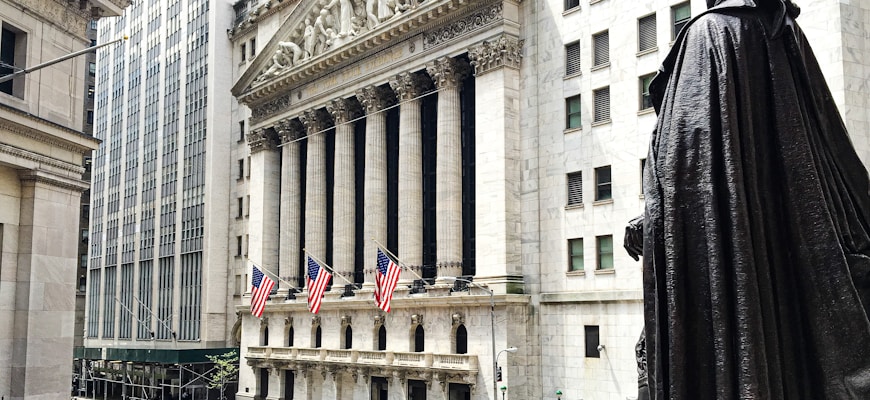Institutional Adoption Soars: Wall Street Embraces Crypto

- Institutional Investors Flock to Crypto Assets
- Wall Street’s Growing Interest in Blockchain Technology
- The Rise of Cryptocurrency Investment Funds
- Big Banks and Hedge Funds Join the Crypto Craze
- Regulatory Challenges for Institutional Adoption of Crypto
- How Traditional Finance is Embracing Digital Assets
Institutional Investors Flock to Crypto Assets
As the cryptocurrency market continues to gain traction, institutional investors are increasingly turning to crypto assets as part of their investment portfolios. This shift towards digital assets reflects a growing acceptance of blockchain technology and the potential for significant returns in this emerging market.
Major Wall Street players, including hedge funds, asset managers, and pension funds, are now allocating a portion of their capital to cryptocurrencies such as Bitcoin, Ethereum, and other altcoins. This influx of institutional money has helped drive up prices and increase market liquidity, making it easier for large investors to buy and sell digital assets.
One of the main reasons behind this surge in institutional adoption is the growing recognition of cryptocurrencies as a legitimate asset class. With traditional markets becoming increasingly volatile and unpredictable, many investors see digital assets as a way to diversify their portfolios and hedge against economic uncertainty.
Moreover, the maturation of the crypto market, with improved regulation, infrastructure, and custodial services, has made it more appealing to institutional players. This increased level of professionalism and oversight has helped alleviate concerns around security and compliance, making it easier for large investors to enter the space.
Overall, the influx of institutional capital into the crypto market is a clear sign of the growing mainstream acceptance of digital assets. As more Wall Street firms embrace cryptocurrencies, it is likely that this trend will continue to accelerate, further solidifying the role of blockchain technology in the global financial system.
Wall Street’s Growing Interest in Blockchain Technology
Wall Street’s interest in blockchain technology is steadily increasing as more institutions recognize the potential benefits of this revolutionary innovation. Blockchain technology, which underpins cryptocurrencies like Bitcoin, allows for secure, transparent, and decentralized transactions.
Many financial institutions are now exploring ways to leverage blockchain technology to streamline their operations, reduce costs, and improve security. By utilizing blockchain technology, Wall Street firms can enhance the efficiency of their processes and gain a competitive edge in the market.
One of the key advantages of blockchain technology is its ability to provide a tamper-proof and immutable record of transactions. This feature is particularly appealing to Wall Street firms, as it can help prevent fraud and ensure the integrity of financial transactions.
Moreover, blockchain technology has the potential to revolutionize the way financial institutions conduct business by enabling faster and more secure transactions. This can lead to significant cost savings for Wall Street firms, as well as improved transparency and trust among stakeholders.
The Rise of Cryptocurrency Investment Funds
As institutional adoption of cryptocurrency continues to rise, we are seeing a significant increase in the number of cryptocurrency investment funds being established by Wall Street firms. These funds are designed to provide traditional investors with exposure to the cryptocurrency market, without the need for them to directly purchase and hold digital assets.
These cryptocurrency investment funds are managed by experienced fund managers who specialize in the cryptocurrency market. They use a variety of investment strategies, including long-term holding, active trading, and arbitrage, to generate returns for their investors.
One of the main advantages of investing in cryptocurrency funds is that they offer diversification benefits. By investing in a fund, investors can gain exposure to a portfolio of different cryptocurrencies, reducing the risk associated with investing in a single digital asset.
Furthermore, cryptocurrency investment funds are subject to regulatory oversight, providing investors with an added layer of security and protection. This regulatory oversight helps to mitigate some of the risks associated with investing in the cryptocurrency market.
Overall, the rise of cryptocurrency investment funds is a clear indication that Wall Street is embracing crypto, recognizing the potential for significant returns in this emerging asset class. As institutional adoption continues to soar, we can expect to see even more investment funds being launched to cater to the growing demand for exposure to cryptocurrencies.
Big Banks and Hedge Funds Join the Crypto Craze
Big banks and hedge funds are increasingly jumping on the crypto bandwagon, signaling a significant shift in the financial landscape. These traditional financial institutions have historically been hesitant to embrace cryptocurrencies, but the tide is turning as they recognize the potential for growth and profit in this emerging market.
As more big banks and hedge funds enter the crypto space, they are bringing with them a level of legitimacy and credibility that the industry has been lacking. This influx of institutional capital is helping to drive up the value of cryptocurrencies and attract more mainstream investors to the market.
Many big banks and hedge funds are not only investing in cryptocurrencies themselves but also offering crypto-related products and services to their clients. This includes trading desks, custody services, and even the creation of crypto-focused investment funds.
Some big banks and hedge funds are also exploring the potential of blockchain technology, the underlying technology behind cryptocurrencies. They see blockchain as a way to streamline their operations, reduce costs, and improve security. This further validates the potential of cryptocurrencies as a legitimate asset class.
Regulatory Challenges for Institutional Adoption of Crypto
The institutional adoption of cryptocurrency has been on the rise in recent years, with more and more Wall Street firms embracing digital assets as part of their investment strategies. However, along with this increased interest comes a number of regulatory challenges that institutions must navigate in order to fully integrate crypto into their operations.
One of the main challenges facing institutional adoption of crypto is regulatory uncertainty. The lack of clear guidelines from regulators on how to treat digital assets has made many institutions hesitant to fully commit to investing in or trading cryptocurrencies. This uncertainty can lead to compliance issues and legal risks for institutions that are not careful in their approach to crypto.
Another challenge is the complex regulatory landscape that institutions must navigate when dealing with cryptocurrencies. Different countries have different regulations regarding digital assets, and institutions that operate globally must ensure that they are in compliance with all relevant laws and regulations. This can be a daunting task for institutions that are used to dealing with more traditional assets.
In addition to regulatory uncertainty and complexity, institutions also face challenges related to security and custodianship of crypto assets. With the high-profile hacks and thefts that have occurred in the crypto space, institutions must take extra precautions to ensure that their assets are secure and protected from theft. This often requires working with specialized custodians who have experience in safeguarding digital assets.
Overall, while the institutional adoption of cryptocurrency is on the rise, there are still many regulatory challenges that institutions must overcome in order to fully embrace digital assets. By carefully navigating the regulatory landscape, ensuring compliance with relevant laws, and prioritizing security and custodianship, institutions can successfully integrate crypto into their investment strategies and take advantage of the opportunities that digital assets present.
How Traditional Finance is Embracing Digital Assets
Traditional finance has begun to show a growing interest in digital assets such as cryptocurrencies. This shift towards embracing digital assets is evident in the increasing number of institutional investors entering the crypto space. Instead of relying solely on traditional investment options, more and more financial institutions are diversifying their portfolios to include digital assets.
These institutions are recognizing the potential for high returns that digital assets offer, as well as the opportunities for growth and innovation in the blockchain and cryptocurrency sectors. By incorporating digital assets into their investment strategies, traditional finance is adapting to the changing landscape of the financial world and staying competitive in the market.
Moreover, the integration of digital assets into traditional finance is also being driven by the demand from clients who are seeking exposure to cryptocurrencies. As more individuals become interested in investing in digital assets, financial institutions are responding to this demand by providing them with the means to do so. This customer-driven approach is further fueling the adoption of digital assets within traditional finance.
Overall, the embrace of digital assets by traditional finance signals a significant shift in the industry and highlights the increasing acceptance of cryptocurrencies as legitimate investment opportunities. As more institutions continue to explore and invest in digital assets, the lines between traditional and digital finance are becoming increasingly blurred. This convergence of traditional finance and digital assets is reshaping the financial landscape and paving the way for a more inclusive and diversified investment environment.




